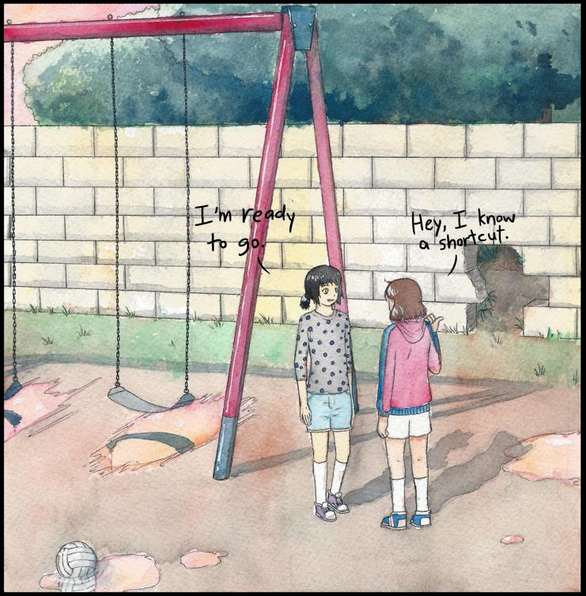From “Why We Need to Ban ‘Conscientious Objection’ in Reproductive Health Care,” by Joyce Arthur, Abortion Rights Coalition of Canada, and Christian Fiala, Gynmed Clinic for Abortion and Family Planning. Published at RH Reality Check, May 14, 2014:
Do health-care professionals have the right to refuse to provide abortions or contraception based on their “conscientious objection” to these services? Many pro-choice activists would retort, “No way! If you can’t do your job, quit and find another career!” We agree with them, and have detailed why in our new paper, “‘Dishonourable Disobedience’: Why Refusal to Treat In Reproductive Healthcare Is Not Conscientious Objection.”
Reproductive health care is the only field in medicine where freedom of conscience is accepted as an argument to limit a patient‘s right to a legal medical treatment. It is the only example where the otherwise accepted standard of evidence-based medicine is overruled by faith-based actions. We argue in our paper that the exercise of conscientious objection (CO) is a violation of medical ethics because it allows health-care professionals to abuse their position of trust and authority by imposing their personal beliefs on patients. Physicians have a monopoly on the practice of medicine, with patients completely reliant on them for essential health care. Moreover, doctors have chosen a profession that fulfills a public trust, making them duty-bound to provide care without discrimination. This makes CO an arrogant paternalism, with doctors exerting power over their dependent patients—a throwback to the obsolete era of “doctor knows best.”
Denial of care inevitably creates at least some degree of harm to patients, ranging from inconvenience, humiliation, and psychological stress to delays in care, unwanted pregnancy, increased medical risks, and death. Since reproductive health care is largely delivered to women, CO rises to the level of discrimination, undermining women’s self-determination and liberty. CO against providing abortions, in particular, is based on a denial of the overwhelming evidence and historical experience that have proven the harms of legal and other restrictions, a rejection of the human rights ethic that justifies the provision of safe and legal abortion to women, and a refusal to respect democratically decided laws. Allowing CO for abortion also ignores the global realities of poor access to services, pervasive stigma, and restrictive laws. It just restricts access even further, adding to the already serious abrogation of patients’ rights.
(Emphasis added.)


![By Vegas Bleeds Neon (Own work) [CC-BY-SA-3.0 (http://creativecommons.org/licenses/by-sa/3.0)], via Wikimedia Commons By Vegas Bleeds Neon (Own work) [CC-BY-SA-3.0 (http://creativecommons.org/licenses/by-sa/3.0)], via Wikimedia Commons](http://crypticphilosopher.com/wp-content/uploads/2014/05/Calvin_and_Hobbes-style_snowman_2b.jpg)
![Philipp Clüver [Public domain], via Wikimedia Commons Philipp Clüver [Public domain], via Wikimedia Commons](http://crypticphilosopher.com/wp-content/uploads/2014/05/381px-Germaniae_antiquae_libri_tres_Plate_17_Clüver-190x300.jpg)
![jodylehigh [Public domain, CC0 1.0 (http://creativecommons.org/publicdomain/zero/1.0/deed.en)], via Pixabay jodylehigh [Public domain, CC0 1.0 (http://creativecommons.org/publicdomain/zero/1.0/deed.en)], via Pixabay](http://crypticphilosopher.com/wp-content/uploads/2014/05/prison-fence-218459_640.jpg)
![By Pkg203 (Own work) [CC-BY-SA-3.0 (http://creativecommons.org/licenses/by-sa/3.0)], via Wikimedia Commons By Pkg203 (Own work) [CC-BY-SA-3.0 (http://creativecommons.org/licenses/by-sa/3.0)], via Wikimedia Commons](http://crypticphilosopher.com/wp-content/uploads/2014/05/320px-Lyft_Pink_Mustache-300x225.jpg)
![klsgfx [Public domain, CC0 1.0 (http://creativecommons.org/publicdomain/zero/1.0/)], via Openclipart klsgfx [Public domain, CC0 1.0 (http://creativecommons.org/publicdomain/zero/1.0/)], via Openclipart](http://crypticphilosopher.com/wp-content/uploads/2014/04/klsgfx_Helicopter.png)
